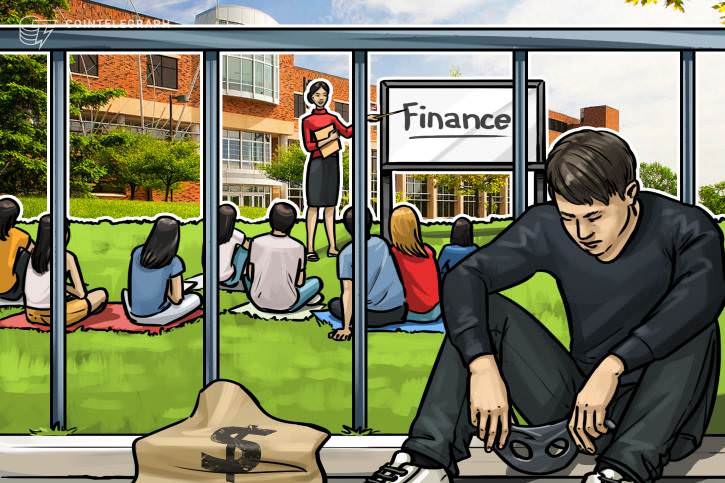
What could well become known as the largest Initial Coin Offering (ICO) scam in history has highlighted the need for the cryptocurrency community to promote financial education.
On Monday, April 9, Vietnamese media reported that nearly $660 mln of investors’ money had been stolen by two separate ICO’s, run by a parent company operating out of Ho Chi Minh city.
iFan and Pincoin, the two ICOs in question, are believed to have been setup and operated by Modern Tech according to the initial report from Tuoi Tre News, a local news outlet. Around 32,000 investors were reportedly duped by the scams and lobbied outside the offices of Modern Tech in Ho Chi Minh on April 8, although the owners had liquidated the company and evacuated their office space more than a month ago. Both ICOs are being described as multi-level marketing ponzi schemes.
The victims state that the company had conned them out of VND 15 trln ($658 mln). That makes the scam a record in the cryptocurrency industry with an astounding $20,500 per person, but raises some questions in absence of any detailed evidence – in particular, whether victims count the money they invested or the assumed value of tokens.
iFan was touted as a social networking platform for celebrities from all walks of life to promote content to their fan base around the world.
Pincoin, an ERC20 token powering the PIN project, promised users up to 40 percent monthly return on investments on the landing page of the website. The project promised to build an online platform powered by cryptocurrency and the Blockchain to provide an ad network, auction and investment portal and peer-to-peer (P2P) marketplace among other offerings.
Both project’s websites are still live. The cellphone of the company’s chief director, Ho Xuan Van, was switched off on April 11.
Government calls for action
In the aftermath of the theft, Vietnam’s deputy prime minister Vuong Dinh Hue has called for swift action, according to Fortune.
His reaction came in tandem with a directive from Vietnamese prime minister Nguyen Xuan Phuc to the State Bank of Vietnam to ensure no financial institutions process cryptocurrency transactions.
Ho Chi Minh police have now been tasked with investigating Modern Tech’s fraudulent activities.
According to Tuoi Tre News, Modern Tech were promising users in Vietnam 48 percent returns monthly for iFan tokens, but they had to make an initial investment of $1000. Furthermore, users were given an 8 percent commission for referring new investors.
Things started to go pear shaped when Modern Tech stopped paying clients interest in cash but in iFan tokens. The value of the tokens plummeted to 1 cent, but Modern Tech set the value of the token at $5 on its own system. Nevertheless users were unable to withdraw their initial cash investments.
Vietnam vetoes cryptocurrencies
The use of cryptocurrencies have been outlawed in Vietnam since Oct. 2017 after a directive from the country’s central bank.
Nevertheless, that didn’t stop the likes of Modern Tech’s aggressive multi-level marketing scheme to attract investors to the ICOs in question. Considering the relatively small volume of virtual currency trade in Vietnam, the ban on cryptocurrencies has had little effect on the price of Bitcoin at the time.
This latest scam will likely be perceived to validate the Vietnamese prime ministers ban, as it supports the notion that an outright ban protects investors from these type of scenarios.
Scammers target areas of low financial literacy
To understand how people are so easily enticed into scams of this scale, Cointelegraph reached out to American investor and founder of Skill Incubator, Chris Dunn. In his opinion, countries with populations that are not financially savvy (A 2015 study by World Bank stated that only 24 percent of the adult population in Vietnam is financially literate — Cointelegraph) are prime targets for financial fraudsters:
“Recently, we’ve noticed scammers have been focusing promoting their Ponzi schemes in countries where financially literacy is low, which makes for easy targets.”
He believes the best form of defence is education. People need to be taught how to “evaluate investment opportunities, quickly spot scams, and know how to manage risk.” Sadly, as Dunn points out, the prevalence of ICO scams has forced countries like Vietnam to take hard measures against cryptocurrencies:
“I believe countries that ban or severely restrict Blockchain innovation are only stealing prosperity from their citizens over the long-term. With that said, I understand why governments are taking a hard stance against ICO’s right now since the space is littered with scams.”
What is needed is a concerted effort from the cryptocurrency community to encourage financial education and ethical investments practices. Without this, Dunn believes governments will naturally “over-regulate and stifle real innovation”.
The cryptocurrency community needs to promote financial education and ethical investment practices, otherwise the risk remains that governments will over-regulate the industry and stifle real innovation.
